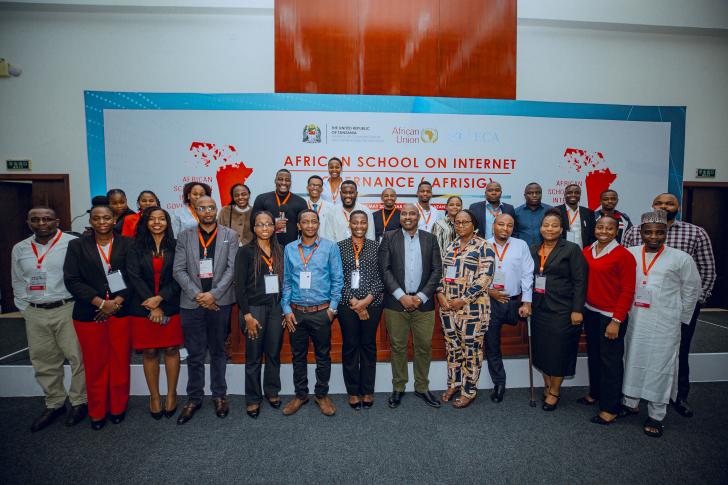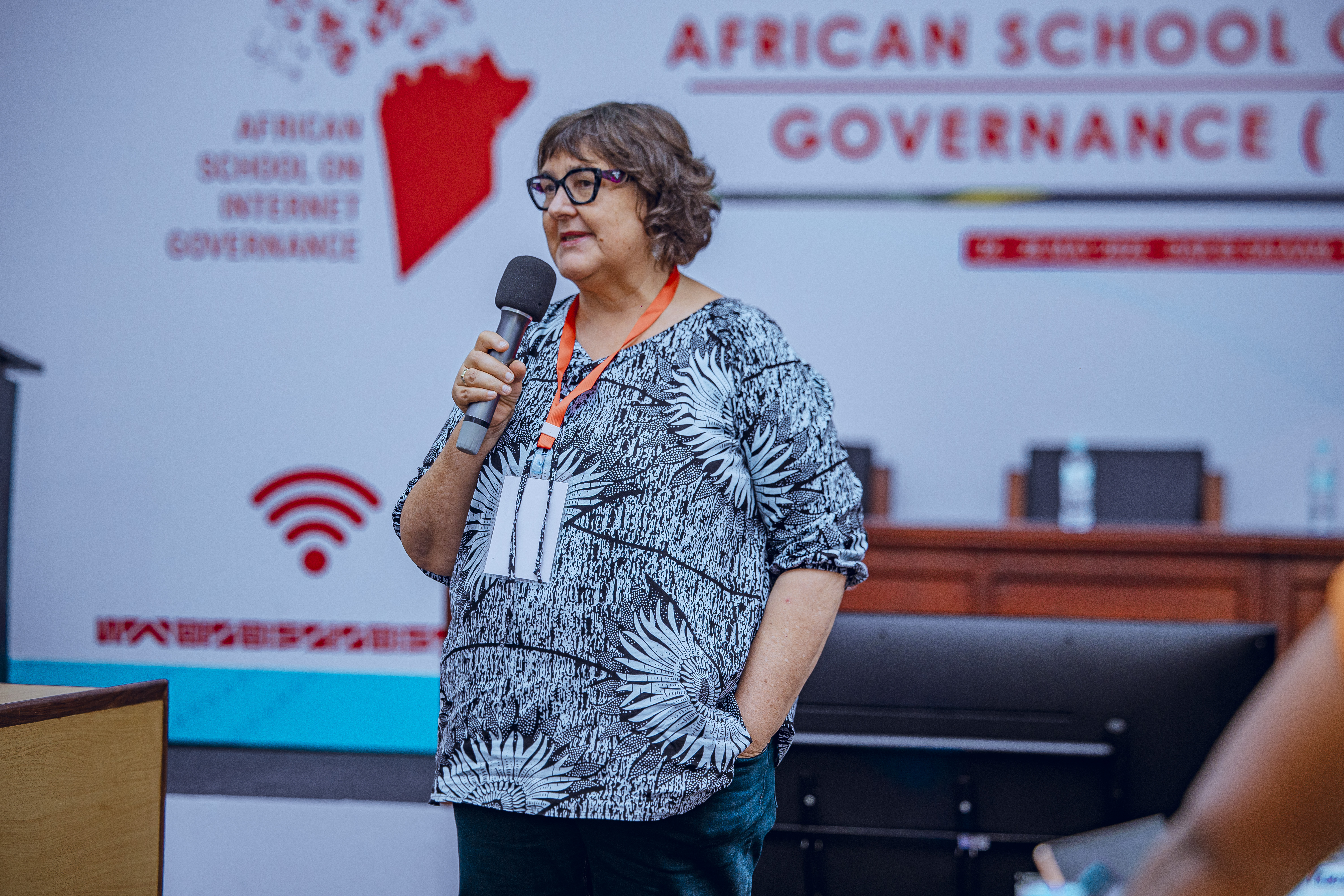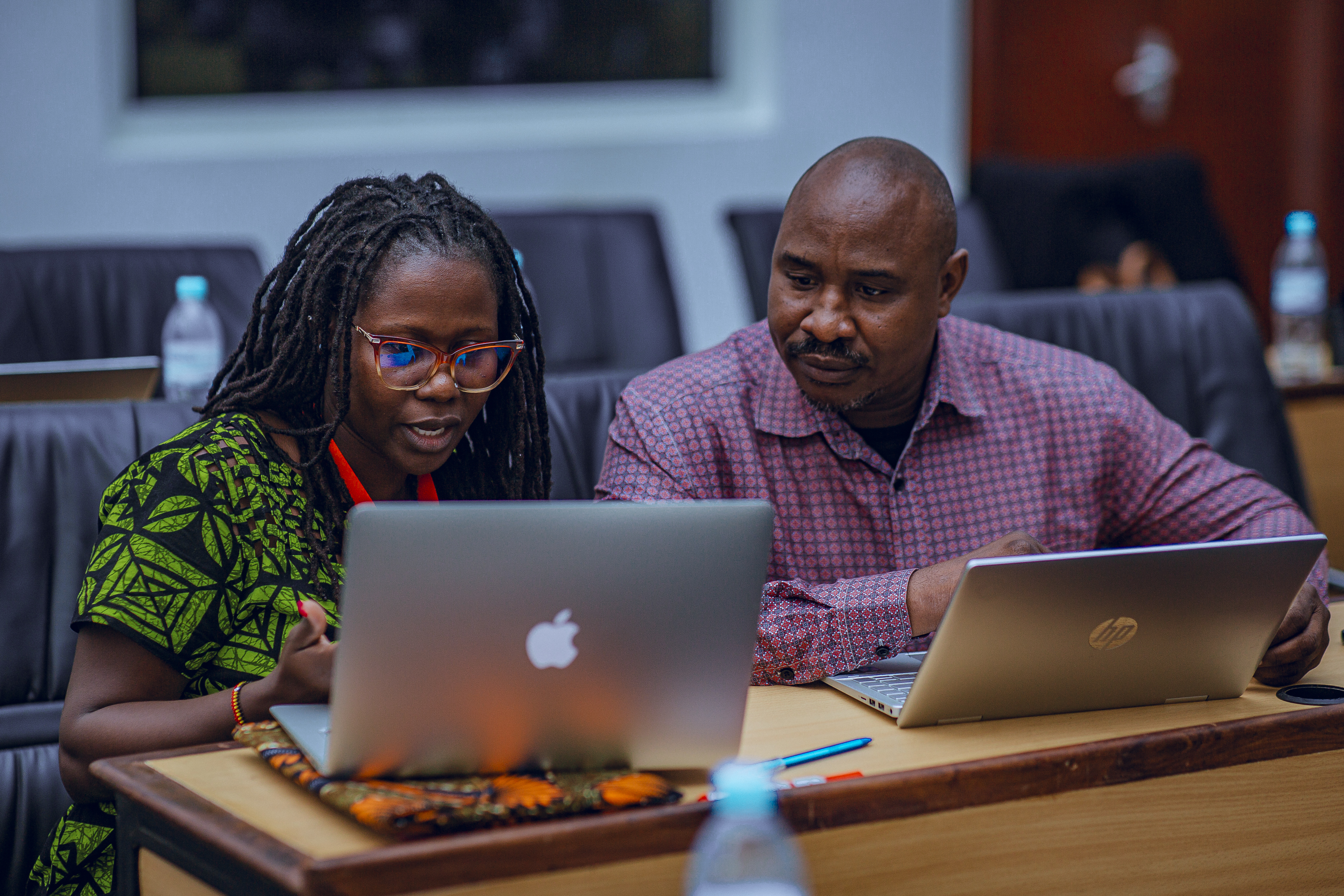
From 23 to 28 May 2025, the 13th African School on Internet Governance (AfriSIG) convened in Dar es Salaam, Tanzania. Jointly organised by the Association for Progressive Communications (APC), the Information Society Division of the African Union Commission (AUC) and Research ICT Africa (RIA) in collaboration with the United Nations Economic Commission for Africa (UNECA) and the UN Internet Governance Forum Parliamentary Track, AfriSIG 2025 was an opportunity to affirm that the future of internet governance must be co-created, contested and claimed from the ground up. Participants from civil society and academia, the tech sector and private sector, governments and policy-making spaces came together to define a shared agenda for shaping a rights-centred digital future across the continent.
AfriSIG has grown since its inception into one of the most influential spaces for fostering inclusive and rights-based internet governance.
“Since 2013, AfriSIG has brought together emerging and existing leaders from different stakeholders in digital policy in what could be described as a multistakeholder immersion experience,” noted Anriette Esterhuysen, APC’s senior advisor on global and regional internet governance and AfriSIG organiser. “People always contribute, change and learn, and we are privileged to have the hard work of preparing for and running of AfriSIG rewarded with extremely positive evaluation feedback from participants.”

This year’s edition took place strategically just ahead of the 2025 Africa Internet Governance Forum (AfIGF), and was set against the backdrop of the upcoming WSIS+20 Review, a global process to evaluate progress made over the past two decades since the original World Summit on the Information Society (WSIS). It brought together stakeholders from across sectors, inviting them to learn from each other as they explored key governance issues. “The fellows gained knowledge of how they can contribute to the governance of the internet as individuals and as stakeholders in their communities, countries and regionally,” said Peace Oliver Amuge, APC’s Africa regional strategy lead and AfriSIG coordinator.
According to Esther Nyapendi, an AfriSIG 2025 fellow and information technologist with the Women of Uganda Network (WOUGNET), “The diversity of participants from the technical, legal and human rights perspectives creates a multi-layered learning environment. AfriSIG offers space to question, collaborate and co-create with other stakeholders a more inclusive internet future for Africa.”
Anchoring human rights in core themes
Offering a five-day immersive curriculum, AfriSIG 2025 combined technical briefs, policy analysis and interactive workshops to bridge theory and practice as well as to promote cross-sector dialogue. The curriculum addressed several intersecting thematic areas including digital inclusion, open internet infrastructure, regional governance frameworks, and emerging issues around artificial intelligence (AI) and climate change.
The practicum, central to AfriSIG’s learning model, was premised on the theme, “Multistakeholder consultation on African priorities concerning data governance for input into national, regional and global digital governance processes”. It gave participants space to experience negotiating and drafting policy frameworks in a multistakeholder environment. “The practicum stood out as a defining moment,” commented Lyndcey Oriko, another AfriSIG 2025 fellow and an investigations and compliance programme officer with the National Cohesion and Integration Commission (NCIC) in Kenya. “Working across sectors to draft a joint policy document showed the real power of multistakeholder dialogue. It transformed abstract theory into concrete, shared solutions, and that is exactly the kind of approach Africa needs for inclusive digital governance.”
The focus of the practicum was to develop an input for the Commission on Science and Technology for Development (CSTD) Working Group on Data Governance mandated by the Global Digital Compact. Participants formed groups to explore priorities such as universal broadband access, meaningful connectivity for marginalised communities and local content creation, ensuring these remain central to any renewed global governance mechanisms. This forward-looking exercise underscored the importance of a strategic regional voice in global internet governance forums. “It [the practicum] illuminated how power dynamics unfold in real policy spaces and emphasised the importance of holding space for those often pushed to the margins, particularly women and girls,” said Nyapendi.
Learning across sectors
While AfriSIG fellows come from diverse sectors (most frequently from civil society), this year there was particularly strong participation by parliamentary representatives. “Due to our partnership with the Tanzanian Ministry of ICTs, who gave us immeasurable support, government personnel made up the largest group of people in AfriSIG,” commented Esterhuysen. She sees this as a positive indicator and a crucial opportunity to engage governments in the AfriSIG process. On the other hand, she added, “it is the openness and the willingness of people from civil society to ask critical questions that so often generates the debates and dialogue that enrich AfriSIG."
This lively mix of backgrounds creates a unique opportunity for participants to explore internet governance issues from new angles. “I always make a point, at the opening of AfriSIG, of reminding the ‘non-state’ participants that they have to remember that government officials have far less freedom to express themselves than civil society activists or journalists do,” noted Esterhuysen, illustrating how impactful it can be to have exposure to the dynamics, opportunities and limitations of different sectors.

The eagerness of fellows to try on different roles throughout the simulation reinforces the value of fostering dedicated multistakeholder spaces and how this diversity of perspectives can enrich and inform policy discussions. “During the practicum, it was quite interesting to see how some participants were keen to take part in the exercise as a different stakeholder other than their usual stakeholder groups,” reflected Amuge.
A growing movement for a rights-based digital future
AfriSIG is not just a training programme; it is a growing movement of African digital policy actors. By fostering cross-sectoral collaboration and equipping participants with a blend of technical understanding and political analysis, AfriSIG helps create the conditions for a genuinely inclusive digital public sphere in Africa. “AfriSIG is a community and network of critical thinkers, advocates and policy makers from across the continent,” asserted Nyapendi. “What makes it truly unique is its intentional intersectionality. It doesn’t just teach you about internet governance, it challenges you to reflect on who the internet is governing and whose voices are left out.”
This year’s cohort took their knowledge to AfIGF with a renewed commitment to embedding human rights at the core of internet governance, not as an afterthought but as a fundamental principle that must shape every policy discussion. As Africa becomes increasingly interconnected, the stakes of internet governance rise. Who gets to define the rules of digital engagement? Whose voices are heard? Who benefits, and who is left behind? AfriSIG 2025 explored these questions not only through its formal sessions, but in the trust and solidarity built among participants. “AfriSIG gave me more than knowledge; it gave me community,” Oriko stated. “I met amazing new friends and we are already building new projects and partnerships together. The energy, the connections, the vibe – it was everything. As we say in our circles now, ‘Come for the policy, stay for the people.’”
For many participants, AfriSIG 2025 reaffirmed that internet governance requires a human rights framework, one that incorporates data justice, accountability and the inclusion of marginalised voices to meaningfully shape Africa’s policy-making landscape. According to Nyapendi, “AfriSIG is not just as another school, but a space where policy, activism and African realities converge.”
To see more videos from AfriSIG 2025, visit the full playlist here.
All photos courtesy of Hugo Domingo